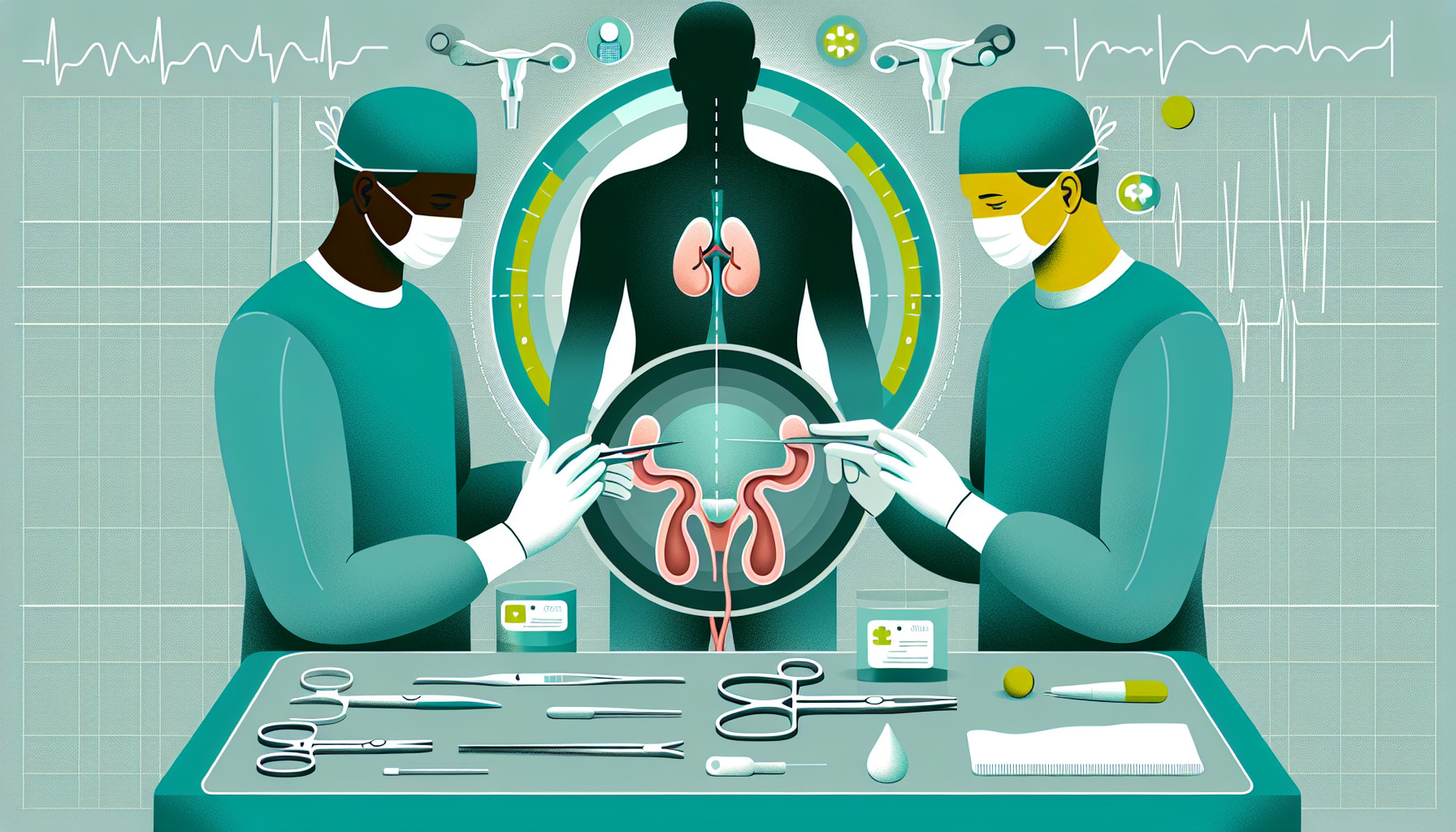Our Summary
This research paper is a review and analysis of studies on the risks faced by older people when they undergo a radical cystectomy (RC), a surgery for bladder cancer. The researchers looked at studies from the past 20 years that reported on deaths and complications within 90 days after the surgery. The focus was on patients aged 75 and older.
They found data from 76 studies, involving 58,504 older patients from 19 countries. The results showed that 11% of patients aged 80 and above died within 90 days after the surgery, compared to 7% of patients aged 75 and above. This means that patients aged 80 and above had over three times the odds of dying within 90 days after the surgery compared to younger patients.
The study also found that older people were more likely to experience minor post-surgery complications. However, the rate of major complications was about the same for older and younger patients. The researchers also found that older patients with more health issues were more likely to die within 90 days after the surgery.
The study concludes that while older patients have a higher risk of dying after RC, this should be weighed against the risk of dying from the cancer if they do not get the surgery. They recommend closely monitoring older patients after the surgery to prevent death from complications.
FAQs
- What are the risks faced by older people when they undergo a radical cystectomy?
- According to the research, who is more likely to die within 90 days after the surgery?
- What recommendations do the researchers give for older patients undergoing radical cystectomy?
Doctor’s Tip
A helpful tip a doctor might tell a patient about cystectomy is to closely follow post-operative care instructions, including taking prescribed medications, attending follow-up appointments, and reporting any unusual symptoms or complications. It is also important for older patients to discuss their overall health and any existing medical conditions with their healthcare team before undergoing surgery, as this can help in managing potential risks and improving outcomes. Additionally, maintaining a healthy lifestyle, including regular exercise and a balanced diet, can also help in the recovery process.
Suitable For
Patients who are typically recommended cystectomy are those who have been diagnosed with bladder cancer that has not responded to other treatments such as chemotherapy or radiation therapy. In particular, older patients who are in good overall health and do not have significant comorbidities are often considered for cystectomy. However, as the research paper mentioned, older patients, especially those aged 80 and above, have a higher risk of complications and death following the surgery. Therefore, careful consideration and monitoring are necessary when recommending cystectomy for older patients.
Timeline
Before cystectomy:
- Patient is diagnosed with bladder cancer and undergoes various tests and consultations with healthcare providers.
- Patient and healthcare team discuss treatment options, including cystectomy, and decide on the best course of action.
- Patient undergoes pre-operative preparations, which may include blood tests, imaging scans, and consultations with anesthesiologists.
- Patient may undergo neoadjuvant chemotherapy or radiation therapy before the surgery to shrink the tumor.
- Patient undergoes cystectomy surgery, which involves removing part or all of the bladder, nearby lymph nodes, and possibly other organs.
After cystectomy:
- Patient is closely monitored in the hospital for complications such as infection, bleeding, or blood clots.
- Patient may receive pain management and physical therapy to aid in recovery.
- Patient may have a catheter in place to help with urine drainage.
- Patient is discharged from the hospital and continues recovery at home, following post-operative care instructions.
- Patient may undergo follow-up appointments with healthcare providers to monitor for any signs of cancer recurrence or complications.
- Patient may undergo adjuvant chemotherapy or radiation therapy after the surgery to reduce the risk of cancer recurrence.
- Patient may experience changes in urinary function and quality of life after the surgery, and may need support and counseling to adjust to these changes.
What to Ask Your Doctor
Some questions a patient should ask their doctor about cystectomy include:
- What are the potential risks and complications associated with a cystectomy, especially for older patients?
- How does my age impact the likelihood of experiencing complications or mortality after the surgery?
- What measures will be taken to monitor and manage any post-surgery complications that may arise?
- How can I best prepare for the surgery to minimize risks and ensure a successful outcome?
- Are there alternative treatment options available for bladder cancer that may be less invasive or have lower risks for older patients?
- What is the expected recovery time and rehabilitation process following a cystectomy for someone in my age group?
- How will my overall health and any pre-existing medical conditions impact the decision to undergo a cystectomy?
- What are the long-term implications of having a cystectomy in terms of quality of life and future health outcomes for older patients?
- Will I need additional support or care after the surgery, and if so, what resources are available to assist me during the recovery process?
- Are there any specific lifestyle changes or precautions I should take after a cystectomy to promote healing and minimize potential complications, especially as an older patient?
Reference
Authors: Tempo J, Felemban S, Qin KR, Perera M, Ischia J, Bolton D, Murphy DG, Kelly B, Watson DI, O’Callaghan M. Journal: BJU Int. 2025 Jul;136(1):19-31. doi: 10.1111/bju.16733. Epub 2025 Apr 9. PMID: 40205754
